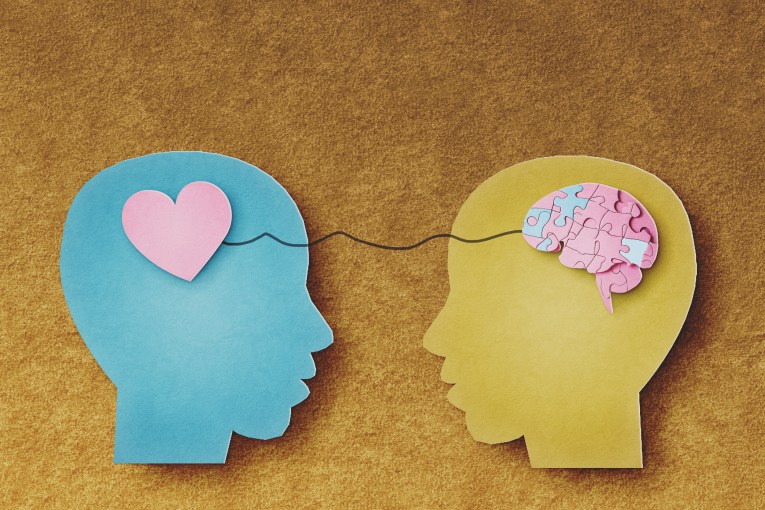How you can stay connected amid increasing chronic loneliness


Photo: Getty
Chronic loneliness is an issue that is seldom discussed at a national level, but it is affecting an increasing number of people across all age groups, according to Australian researchers.
A new study by The Australian Psychological Society (APS) and Swinburne University of Technology released on Friday has found that one in four Australians experiences feelings of loneliness, and nearly 30 per cent of people feel they are not part of a friendship circle.
Lead researcher Dr Michelle Lim, of Swinburne University, said she was surprised by the extent of loneliness in Australia.
“The problem is a lot more prevalent than I previously thought,” Dr Lim told The New Daily.
“We used quite conservative estimates [in the study]. Respondents had to score very high on the scale for us to actually say that this person is lonely.”
Dr Lim said people with higher loneliness levels also reported more physical health symptoms, including sleeping difficulties, headaches, stomach complaints, nausea, colds and infections.
The Australian Loneliness Report surveyed about 1600 Australians across all age groups and walks of life. It also found that one in four people experiences significant social difficulties or social anxiety.
While most people are connected by technology or social media, one in four respondents said they did not feel they had a lot in common with the people around them.
APS president and Macquarie University’s psychology clinic director Ros Knight said there were many reasons why someone might feel lonely.
“It can be a parent who is stuck at home taking care of a young baby, and is feeling quite isolated from their colleagues, or even family members and friends, if everyone is off doing their own things,” Ms Knight said.
“Then we’ve got the career adult, who spent all their adult life travelling and building up their career, doing all that good stuff, and then gets to their mid-40s and looks around and realises they’ve got nobody to share this with.”

Loneliness can be caused by a myriad of factors. Photo: Australian Psychological Society
Ms Knight told The New Daily that social media has changed the dynamic of relationships, but digital technology is not entirely to blame.
“To say it’s all due to technology would be inaccurate,” she said.
“But for some people if that becomes their only source of socialising, for example if they’re not engaging with family, or neighbours, or friends, then it’s going to have a [negative] effect.”
Busier lifestyles, career pressures, and lack of time to socialise are all contributing to increasing loneliness in modern day society, Ms Knight said.
“A lot of things have changed over the years that have led to this position. Interestingly, from our Australian sample, the elderly did the best,” she said.
“That suggests that people who have grown up in a society where they went to community events, school groups, were involved with local sports, and religious group perhaps, learned to make and maintain friends.
“And I also think that’s the generation that was less likely to move all over the place. The generation since then was much more mobile.”

Digital relationships can become a problem if they start taking over real connections. Photo: Getty
Learning to reconnect
One of the ways to address loneliness is to focus on the quality, rather than the number, of relationships in your life, Ms Knight said.
“The first tip is to think about who you have dropped out of your network in recent history, perhaps because you’ve been travelling a lot and it’s been hard to connect,” she said.
“Start to think about your previous connections. Actually make a conscious decision to reconnect with some people.”
According to the study, fewer Australians were connecting with their neighbours, with three in four people admitting they do not talk to the person living next door.
This is a lost opportunity, according to Ms Knight.
“It’s an important relationship for lots of reasons. It’s a good place to start in terms of practising skills and trying to build up a connection, to then see if you want the relationship to go further,” she said.
“You’ve got to start somewhere, and neighbours are a really good place to start engaging.

Striking up a conversation with your next door neighbour builds confidence and social skills. Photo: Getty
“If you think someone might be lonely, visit them for a chat. Invite them out for a coffee. Perhaps suggest connections for them.”
If feelings of loneliness worsen, or the individual starts to experience depression or severe anxiety, it’s important to seek professional help, Ms Knight said.
She recommended speaking to a GP about your symptoms and asking for a Medicare-billed referral to a psychologist.
“The good news is that an individual can do a lot to address loneliness. Social anxiety is treatable,” Ms Knight said.








